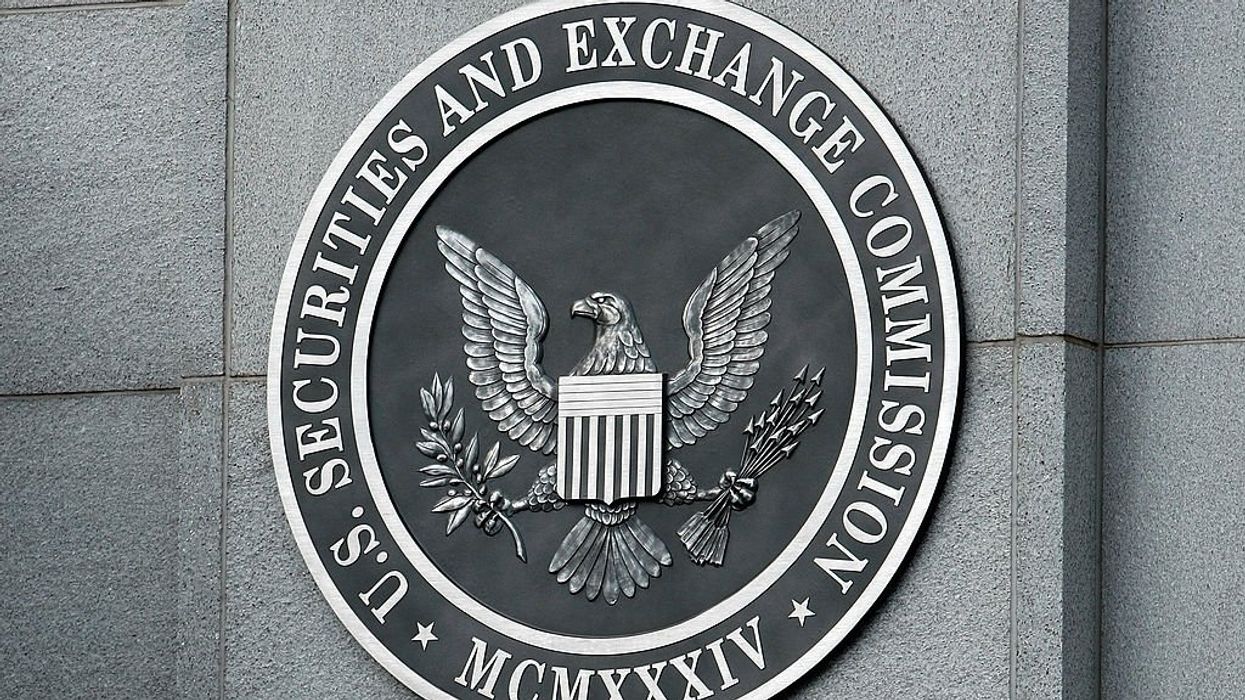
Chip Somodevilla/Getty Images

Lawyers, accountants, and consultants who specialize in tracking and reporting carbon emissions reap a regulatory windfall while everyone else pays the price.
The EPA has been making headlines recently with its expensive and unrealistic emissions requirements for cars and trucks. But that’s not enough for the radical climate activists in the Biden administration. So, the Securities and Exchange Commission issued new climate rules, overstepping its legal authority and creating a financial bonanza for consulting, accounting, reporting, and auditing firms while saddling stakeholders and consumers with higher regulatory costs. The SEC’s climate-related disclosure rules will impoverish society while enriching a handful of blessed industries — namely Democratic Party donors.
By the SEC’s own estimate, the 886 pages of rules will more than double the cost of compliance to more than $6 billion annually. That number will grow every year.
The SEC has added billions of dollars in costs to the benefit of a niche set of legal, accounting, and consulting climate specialists.
According to one survey in 2022, companies that voluntarily reported most of the climate information required by these rules spent over half a million dollars on monitoring, assessing, and recording of their Scope 1 and Scope 2 emissions. Now that we have new legal rules, companies will have to spend millions more parsing the rules, hiring external auditors, and writing carefully worded reports to avoid costly litigation.
These costs will hamper companies and reduce how many resources they can devote to product development, innovation, production, investment, and other activities. Highly regulated industries, like railroads at the end of the 19th century and airlines in the middle of the 20th century, innovate less. They also have higher consumer prices, slower wage growth, and smaller returns for shareholders.
Meanwhile, the lawyers, accountants, and consultants who specialize in tracking and reporting carbon emissions reap a regulatory windfall. They will see much greater demand for their “services.” The SEC has effectively created hundreds of millions of dollars of new demand for niche software firms like Persefoni and Workiva; major management consulting firms like McKinsey, Boston Consulting Group, and Bain; and other large legal and accounting firms like PWC and Deloitte.
Not surprisingly, lawyers, business services, and environmental groups are among the most partisan industries when it comes to political donations, giving overwhelmingly and generously to the Democratic Party.
SEC Chairman Gary Gensler’s primary argument has been that the new disclosures are “material” or relevant to the financial prospects of a company. After all, “climate risks can pose significant financial risks,” we are told, and “prudent management of climate risk is essential for all ... climate risk is therefore a key consideration for long-term asset owners.”
Severe weather along with reputation, taxation, and regulation can all affect the profitability of a company.
Yet, if these factors affect a company’s financial prospects, then the company was already obligated to report them. The climate-related disclosure rules require companies to report all kinds of information about emissions that interest some activist investors but that companies do not consider material to their financial performance. Obviously, the SEC disagrees with those companies’ assessments.
But if the SEC is right and climate risks do constitute material information, they can take companies who do not disclose that information to court. Let’s see the regulators prove the materiality of this information in court. They won’t succeed, and they know it. So, they created this monstrous new set of rules instead.
Still, the fact that they created these rules to avoid having to argue their case in a court of law doesn’t mean they won’t end up there. Lawsuits are already piling up, and the rules are only a few weeks old. In fact, the Fifth Circuit Court of Appeals has already paused their implementation.
Unfortunately, significant damage will already have been done as companies must prepare to comply given the uncertainty of the outcome of these legal challenges. The SEC has added billions of dollars in costs for the sake of a limited class of activist investors with nonfinancial interests, to the benefit of a niche set of legal, accounting, and consulting climate specialists, and to satisfy its own beliefs about climate change.
Federal bureaucrats should not be able to impose the wasteful costs of their virtue-signaling on everyone else. Companies should decide what risks they believe are material to their financial prospects and assess those risks in the most cost-effective way they can. If investors or the SEC think a company is not reporting something material, the courts are always open. Let impartial judges decide the issue, not politically motivated bureaucrats and their deep-pocketed donors.
Paul Mueller, Ph.D., is a senior research fellow at the American Institute for Economic Research.
Paul Mueller